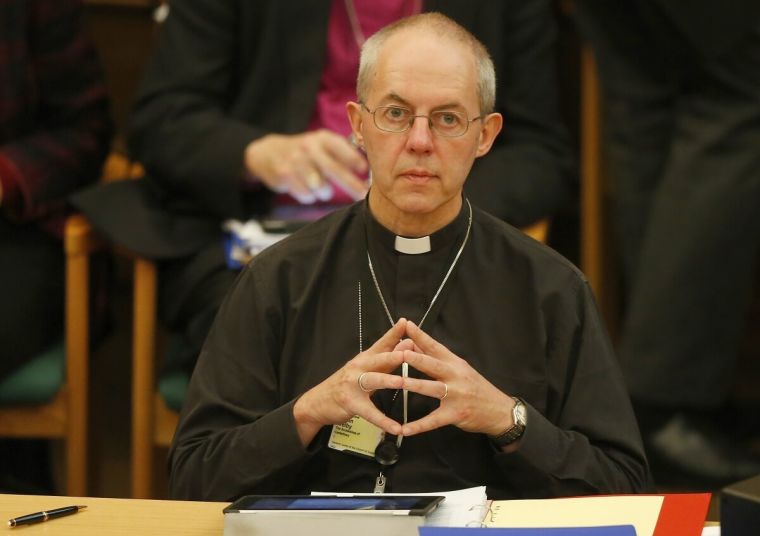Evangelical Anglicans Warn Bishops Of 'Fundamental Disunity' If Church Changes Teaching On Gay Relationships
Nearly a hundred evangelical leaders have written to Church of England bishops warning that any change in teaching or practice over same-sex relationships would cause "fundamental disunity".
The letter was sent to every bishop including the Archbishop of Canterbury on Tuesday as they consider whether to introduce some form of acceptance or blessing for gay couples. It warns the smallest change would "trigger a process of division and fragmentation among faithful Anglicans".

The signatories include major church leaders as well as heads of Anglican networks and some of the Church's largest theological colleges. Any shift in teaching that sex should only be within marriage between one man and one woman would "cause a break not only with the majority of the Anglican Communion, but with the consistent mind of the worldwide Church down many centuries," they warn.
"Responses would vary, but the consequences for the life and mission of the Church will be far-reaching, both nationally and globally."
Beneath the question of same-sex relationships were deeper "tectonic issues" including the authority of the Bible, the Church's "apostolic inheritance" and how it relates to wider culture, the letter said.
"Any change in the Church's teaching or practice – such as the introduction of provisions that celebrate or bless sexual relationships outside of a marriage between one man and one woman – would represent a significant departure from our apostolic inheritance and the authority of the Bible in matters of faith and doctrine," the letter read.
"It would also, inevitably, be a further step on a trajectory towards the full acceptance of same-sex sexual partnerships as equivalent to male-female marriage."
The 88 signatories include representatives from four major Anglican theological colleges, which train new vicars for the Church. Although signing in a "purely personal capacity" the figures cover Wycliffe Hall, St Mellitus College, St John's School of Mission and Oak Hill College.
Also among the signatories are members of the Living Out group who describe themselves as "same-sex attracted" but follow the Church's demand of abstinence. Ed Shaw, a trustee of the charity, said that any change would leave him "and thousands of other same-sex attracted Christians high and dry".
He told Christian Today: "It [the Church] has told us for thousands of years we should remain celibate.
"If there is any change they will have told us very cruelly that we needn't have bothered.
"I think there will be a sense of deep betrayal among those of us who are sticking to the Church's teaching and have found it painful but worthwhile if the Church says, 'sorry we got it wrong,' for no better reason than the culture finds it unacceptable."
But Anthony Archer, an LGBT ally on the Church's synod who also describes himself as an evangelical, told Christian Today the letter was "fairly disingenuous".
He doubted it would have much impact on bishops and said they have a "drawer-full of letters" from both sides.
"Conservative evangelicals are clearly hanging onto the view this is a first order issue. I am afraid that train has left the station," Archer said.
"The traditionalists are showing themselves to be on the back foot."
Rev John Dunnett, chair of the influential Evangelical Group on General Synod (EGGS), coordinated the letter and told Christian Today none of the group wanted a split.
"We would love to see a restatement of the biblical vision for identity and human flourishing that we have inherited," he said.
"This is about something much bigger than same-sex relationships".
Dunnett said the Church was at a "crossroads" and many "will have no option than to reconsider their position in the CofE" if the bishops suggest anything that even gives the perception the Church has changed its position.
"It is important that whatever the bishops propose it does not sow confusion about the teaching of the Church."
The letter is similiar to one sent to the bishops shortly after the Church's last synod meeting, which was signed by 72 conservatives. It comes as the latest in a line of lobbying efforts from both sides of the debate ahead of the synod's next meeting in February.











